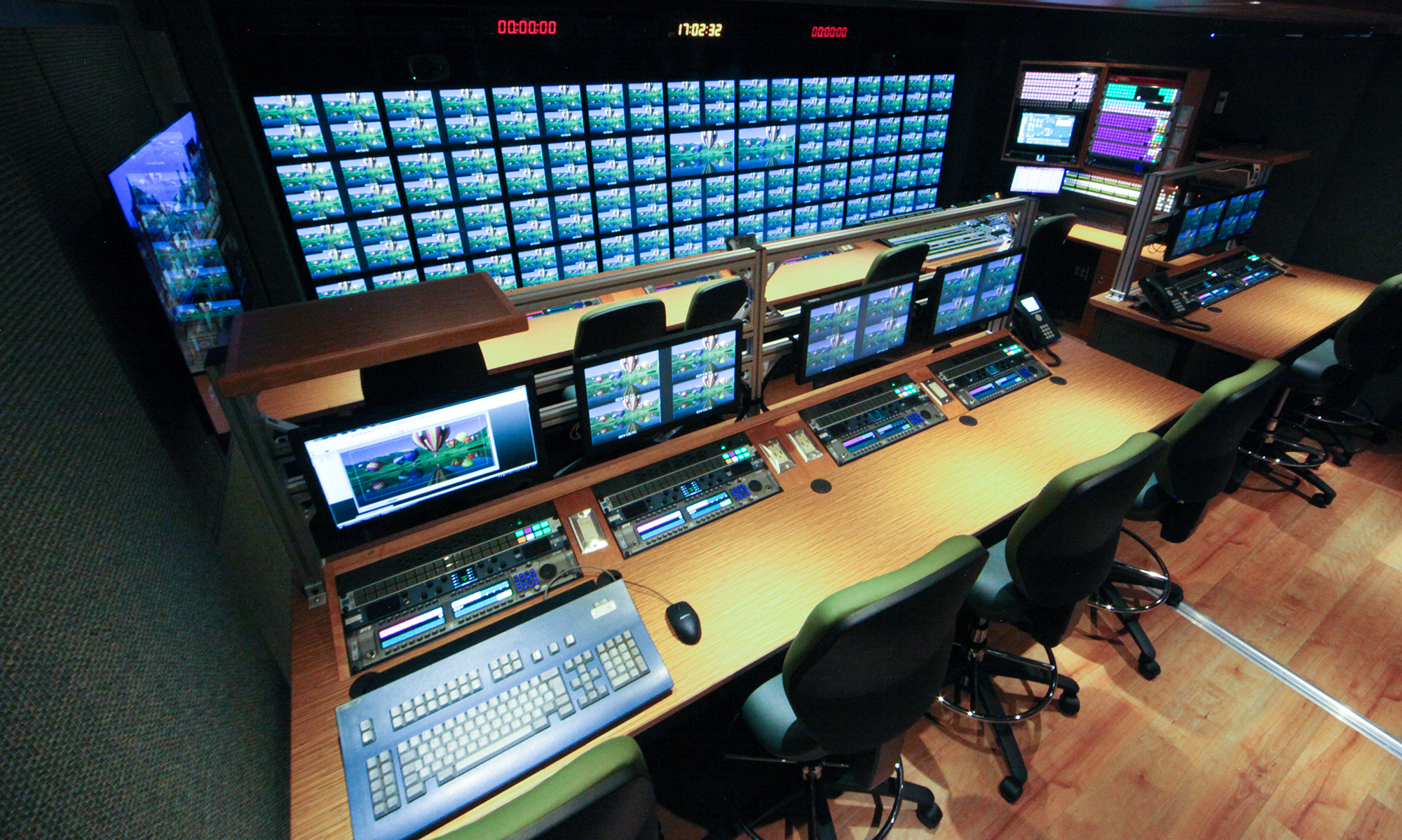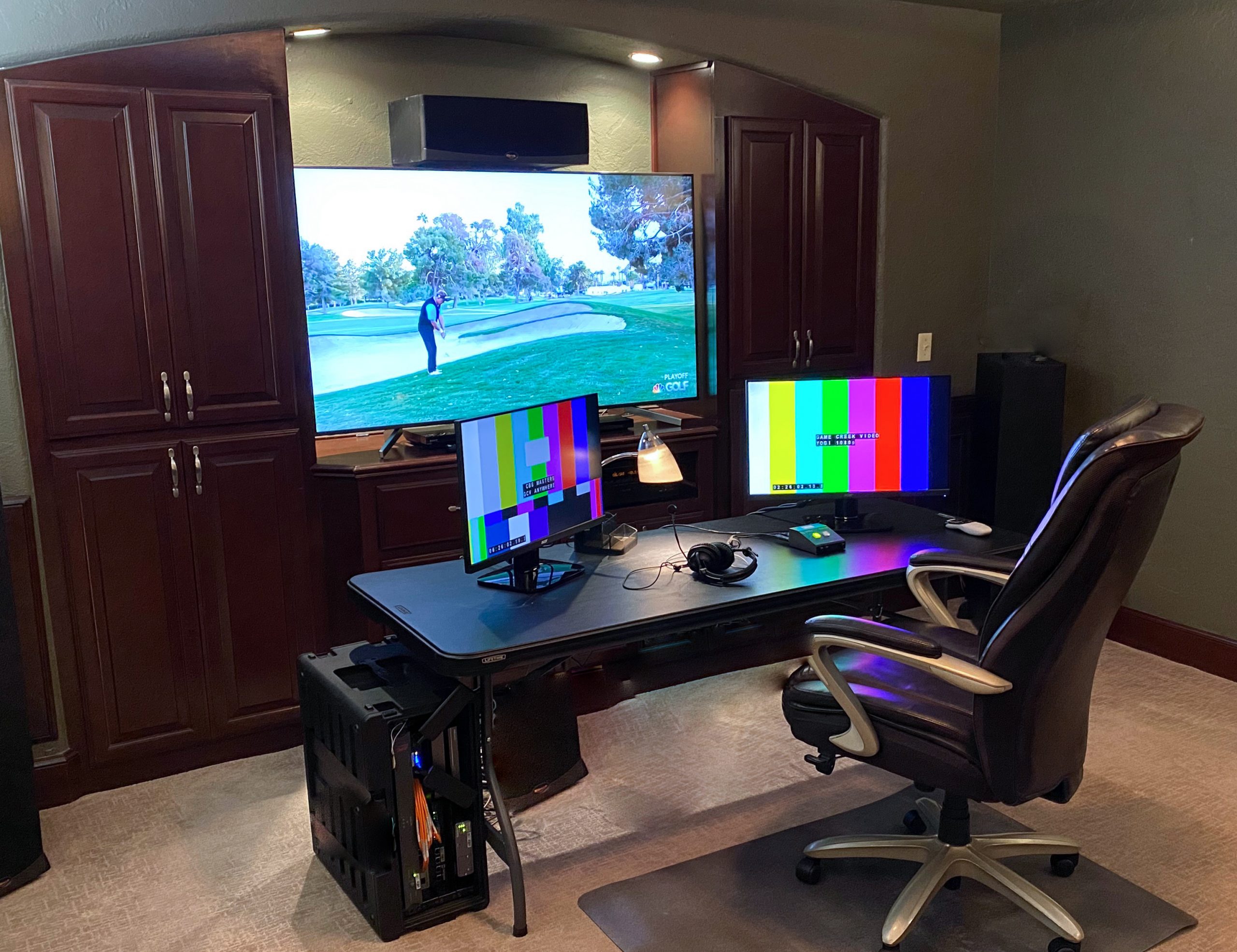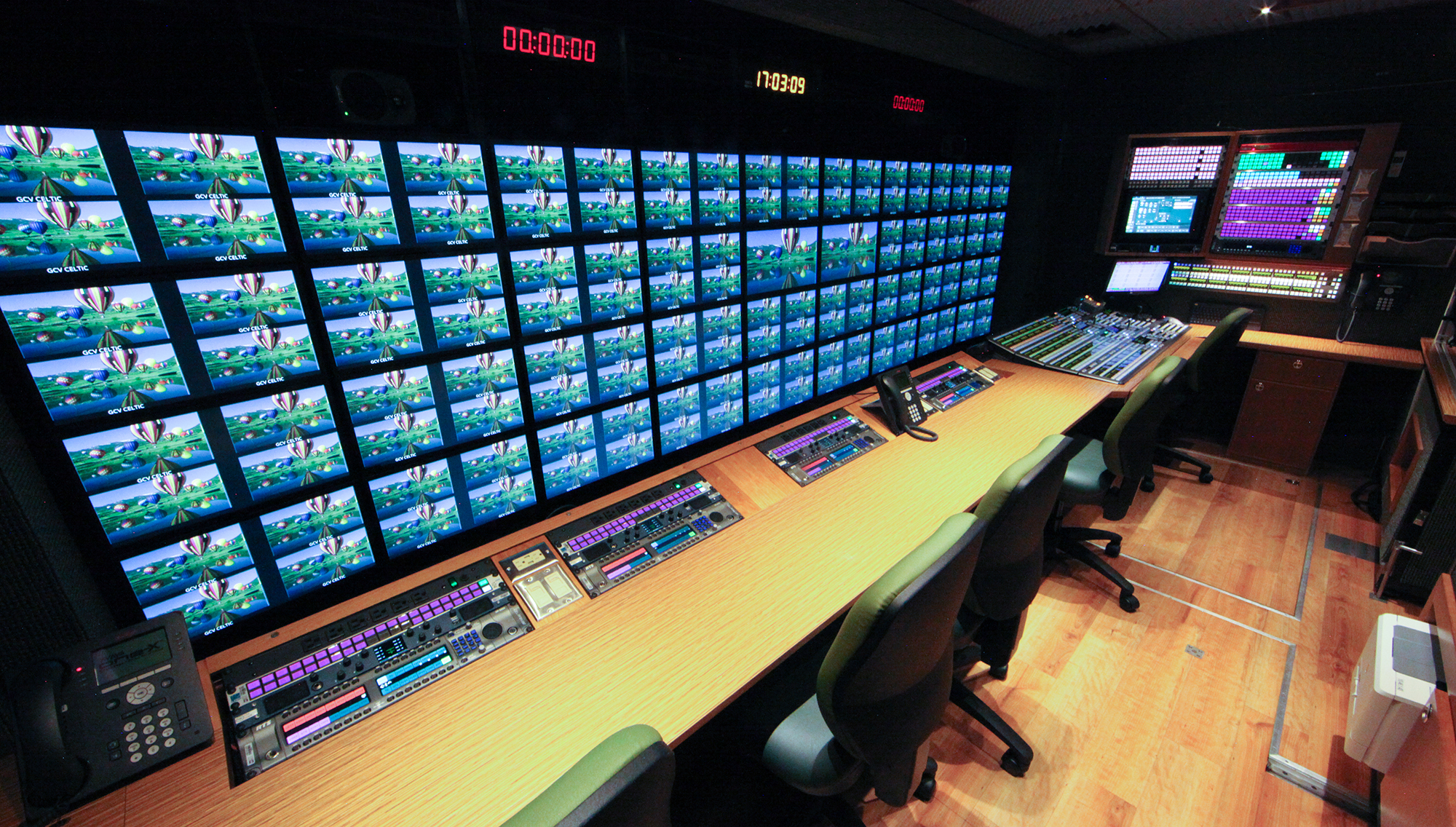Game Creek Video Embraces Remote Production With GCV Anywhere; New Trucks Continue To Blaze IP Trail
New solution aims to be a ‘truck in a tiny box’
Story Highlights
Despite the significant challenges presented by the pandemic, Game Creek Video has stayed busy in 2020. The production-facilities provider not only has rolled out three trucks in recent months (with another on the way soon) but has also developed a remote-production offering — dubbed GCV Anywhere — that is sure to be a major piece of its solutions portfolio even in a post-pandemic world.
“With GCV Anywhere,” says Jason Taubman, SVP, technology, Game Creek Video, “we’re looking to solve the problem of how to [conduct] a production at a distance – leaving all the major assets in place on the truck but shifting production crew and operators back home. The [client] can customize their workflow for the different operating positions, and GCV Anywhere is the centerpiece that enables all of that. It manages the bandwidth, video encoding and decoding, comms, and so on. That way, we can offer [the client] this transport piece in the middle and allow them to choose the pieces they need on both ends.”
GCV Anywhere Goes Live as Demand for Remote Production Ramps Up
CBS Sports was the first Game Creek client to use the GCV Anywhere solution, when it was looking to produce college football on CBS SportsNet with the production crew located offsite.
Game Creek already had in place a VPN network that could manage all the command and control elements, including router-control panels and comms. In addition, Game Creek is leveraging Haivision’s SRT protocol to enable low-latency video encoding over the public internet.
“One of the main problems [CBS Sports] had to solve was that they don’t have dedicated bandwidth dropped into all these venues,” says Taubman. “They needed to leverage whatever [connectivity] they were provided. For example, Army or the [home school] was going to drop some internet [connectivity] at the side of the truck, and that would be all [the crew] had to work with.”
With Haivision’s SRT Gateway IP streaming solution in place, Game Creek is able to use the public internet for all video transport. The video streams are encoded and sent to a Haivision SRT Gateway located in the AWS cloud. From there, the video streams are sent to Freedom Broadcast Group’s facility in Clifton, NJ, where CBS’s production staff is housed in a control room.
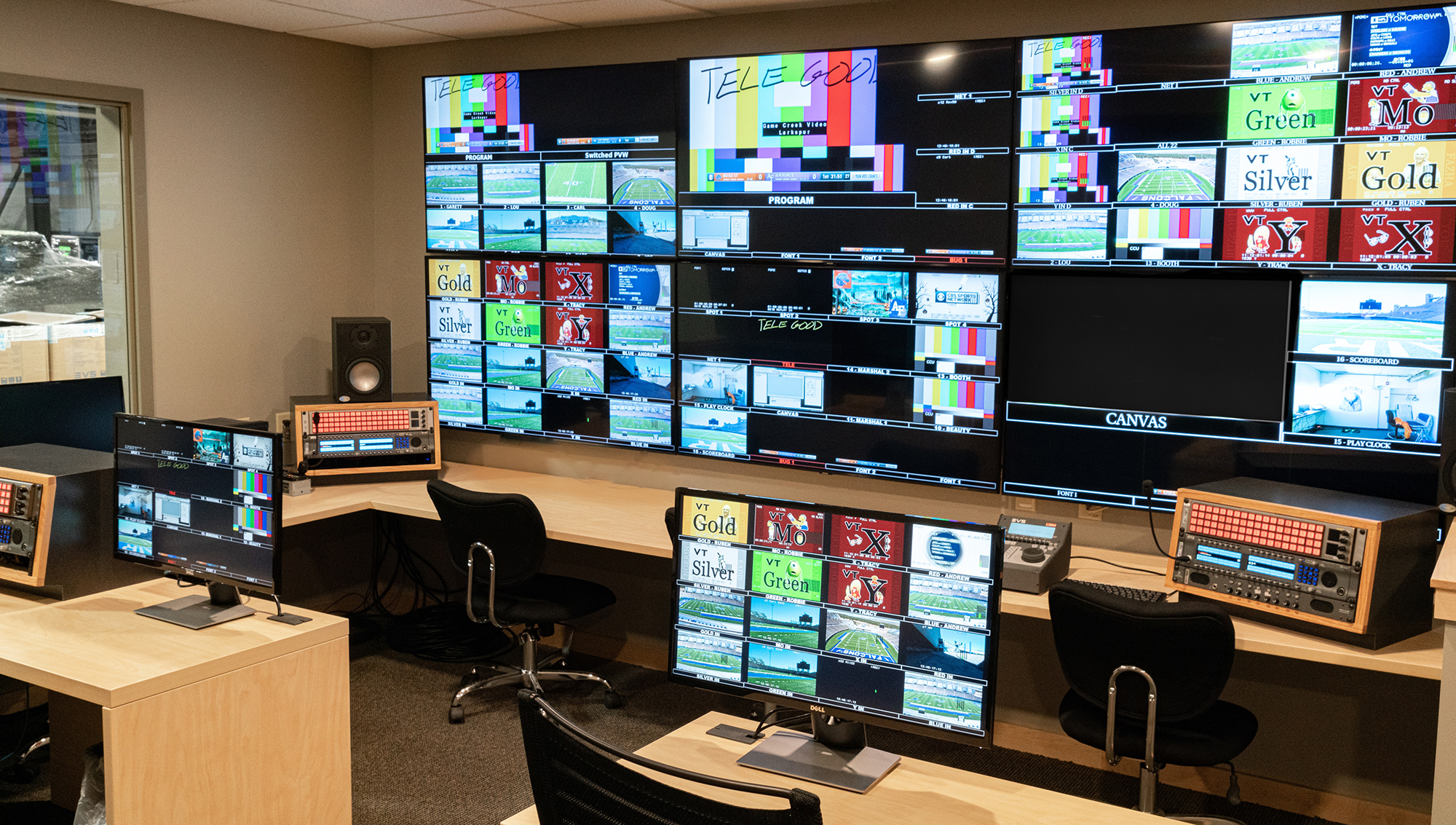
One of Game Creek’s remote monitoring and contribution setups in a conference room at the manufacturer’s Hudson, NH, office
“SRT has been really key,” says Taubman. “We experimented with non-SRT workflows and found that they just didn’t work very well. SRT is this magic piece that makes it happen. Where you don’t have a dedicated circuit, the Haivision SRT Gateway makes it possible for us to work with the public internet effectively.”
While the GCV Anywhere can easily be deployed using a Game Creek truck, it can also be used in scenarios using other mobile units or broadcast facilities. In this case, a GCT (Game Creek Transport), a standalone shippable unit, is deployed in the absence of a Game Creek truck. The GCT can be integrated into any third-party truck or broadcast facility and serves as the gateway into the GCV Anywhere service for any non-Game Creek entity.
“The GCT is essentially a stand-in for a Game Creek truck,” Taubman explains. “It has all the Game Creek special secret sauce that’s normally baked into our trucks, but it’s packaged into that little box. You just drop it next to the truck, plug in some basic internet [connectivity], and route video over to it. The GCT lets us take care of everything from there in terms of comms, command, and whatever else you need. It’s essentially a Game Creek truck in a tiny box.”
After initially deploying GCV Anywhere for its college-football productions, CBS Sports has enlisted Game Creek to build three more systems. Game Creek is currently aiming for sub–1-second latency and is typically between 0.5- and 0.7-second latency with the Haivision SRT Gateway in place for college-football shows, which have widely varying bandwidth from one week to another.
“So far, the feedback from the CBS folks has been really positive,” says Taubman. “Images have been clear, and the latency has been low enough that the production team has been able to get their work done and do the show without feeling like they were out of sync with the production.”
Looking Ahead: What GCV Anywhere Means for the Future
Taubman says Game Creek has been working on this type of remote-production solution for years but was waiting for a client and situation that called for it. With the pandemic wreaking havoc on live–sports-production operations, GCV Anywhere has quickly moved to front and center in the company’s conversations with clients.
“We’ve really just been waiting for someone to say they wanted to do it,” says Taubman. “We had a playbook and just needed a reason to do it. Now that it’s out there in the real world, we’ll see how it evolves. We have pricing for it. We have a template for it. We can build them very rapidly and deploy them quickly. And I think you’re going to see it picking up some steam really rapidly. No matter what happens with the coronavirus, I think it’s going to be a permanent tool in our drawer from now on. People are going to have a need for it.”
A Trio of New Mobile Units Hits the Road
While Game Creek’s remote-production efforts are heating up, the company remains firmly entrenched in the mobile-unit business. Gridiron, Columbia, and Celtic rolled out in the past six months, and Gotham is on the way late this year or early next year for MSG Networks.
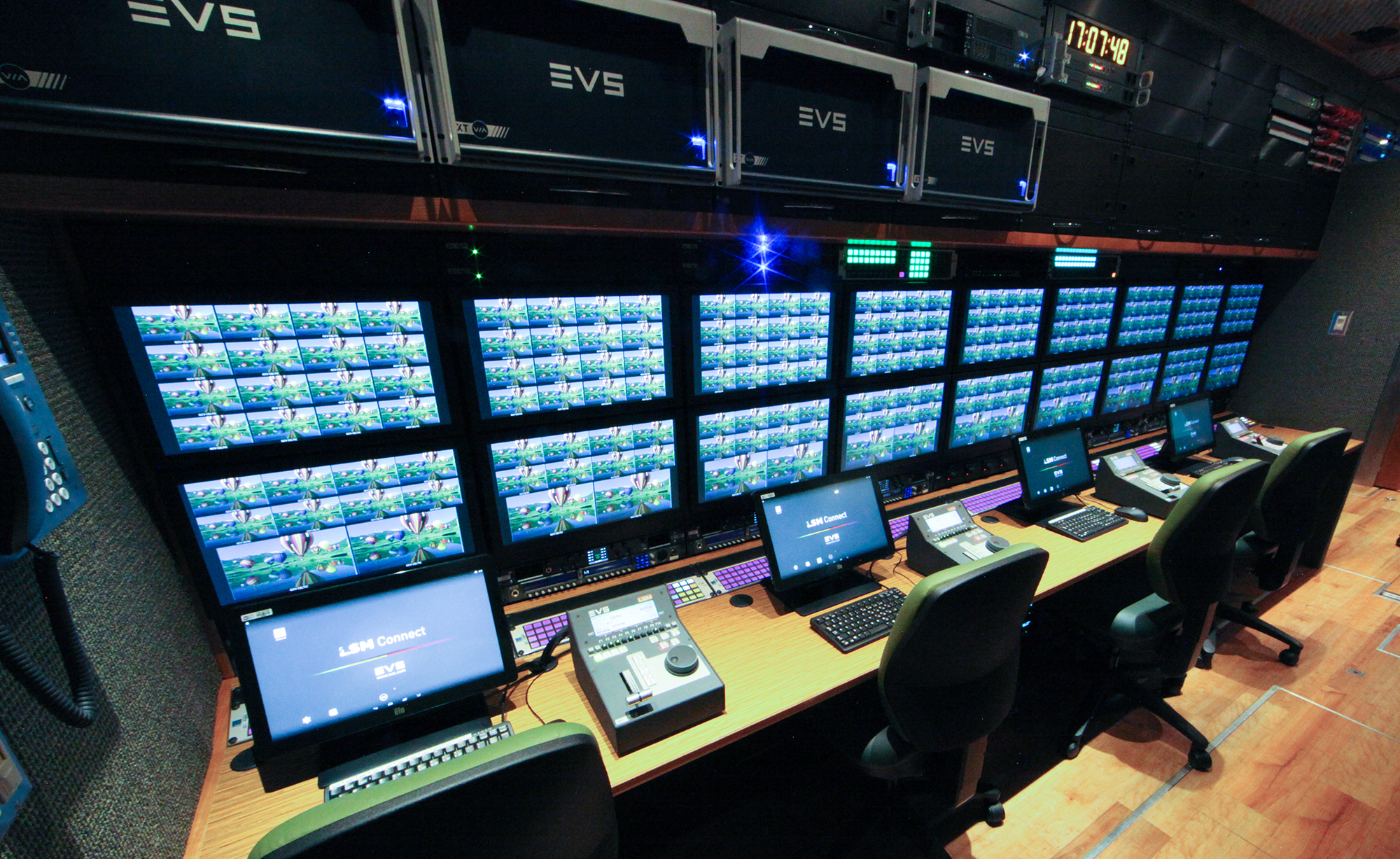
Each of Game Creek’s three new trucks houses up to eight 16-channel EVS replay servers and one SpotBox in parallel SDI and ST 2110 workflows.
All four trucks are IP-based, building on Game Creek’s existing Bravo. Based on the SMPTE ST 2110 standards suite, these trucks feature fully native IP with the exception of replay and cameras (which the company hopes to transition to IP in the near future as vendor equipment becomes available).
“These trucks are all 2110 at their core and native IP as much as possible,” notes Taubman. “We’re not just doing it for the sake of saying we’re going IP; we’re really trying to deliver on the promise of 2110, which is getting out to the edge to open up new possibilities. We’re using a COTS core for the network piece and 2110 everywhere we possibly can.”
Columbia and Celtic are standalone trucks that (like Bravo) primarily serve CBS Sports. Gridiron travels with a B unit (also fully IP) and primarily serves Fox Sports.
All three trucks are built around a Grass Valley K-Frame X (192×96 via ST 2110) switcher and Lawo/Arista ST 2110 IP routing network with VSM control (432×528 SDI Gateway plus 16/64 4K/3G UDX and 288×96 multiviewer via IP).

The audio room in each of Game Creek’s three newest trucks features a Calrec Artemis surround-sound console.
The trucks roll with up to 20 Sony HDC-5500 cameras built out in parallel SDI and ST 2110 workflows and up to eight 16-channel EVS replay servers and one SpotBox also built out in parallel SDI and ST 2110 workflows.
On the audio side, all three units feature a Calrec Artemis surround-sound console (96×96 analog, 192×192 AES, 16×16 MADI, 1024×1024 AES67) and Lawo PowerCore audio router (192×192 analog, 384×384 AES, 36×36 MADI),
“IP is coming of age for sure, and we’ve really come a long way,” says Taubman. “It will be interesting to see how IP and 2110 play into our systems further down the road as [the pandemic] plays out. When we get to the other side of this, what will the 2110 ecosystem offer in terms of remote workflows? Regardless, we are certainly marching down the IP road, and we’re not looking back. IP is the way forward for us.”
